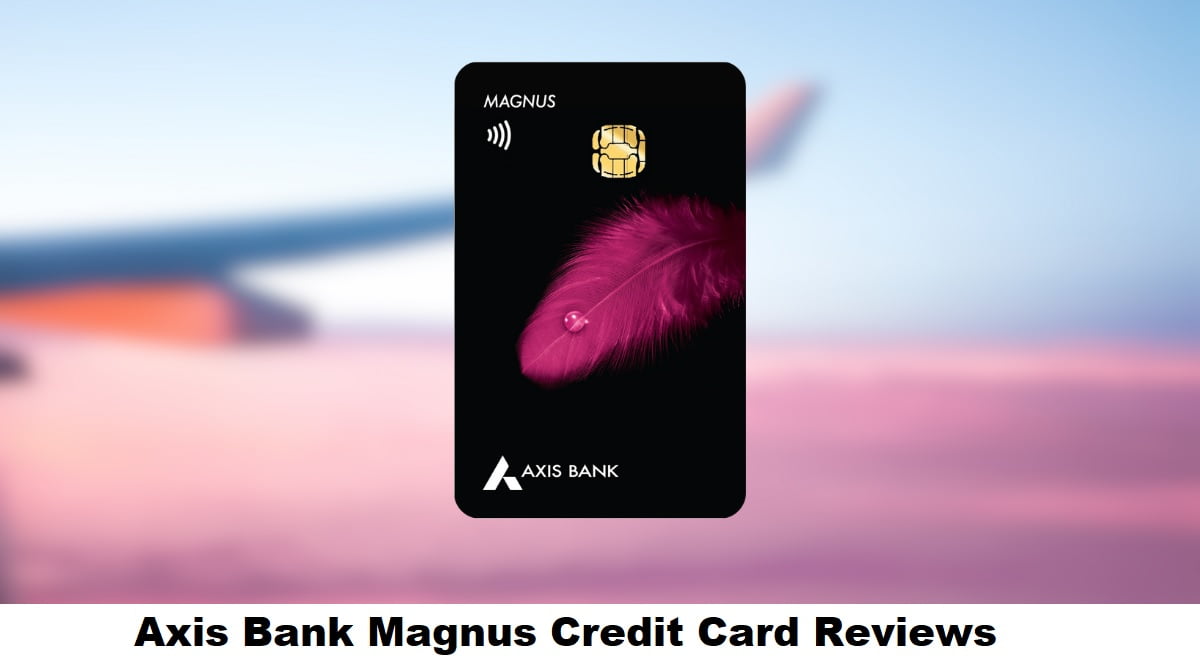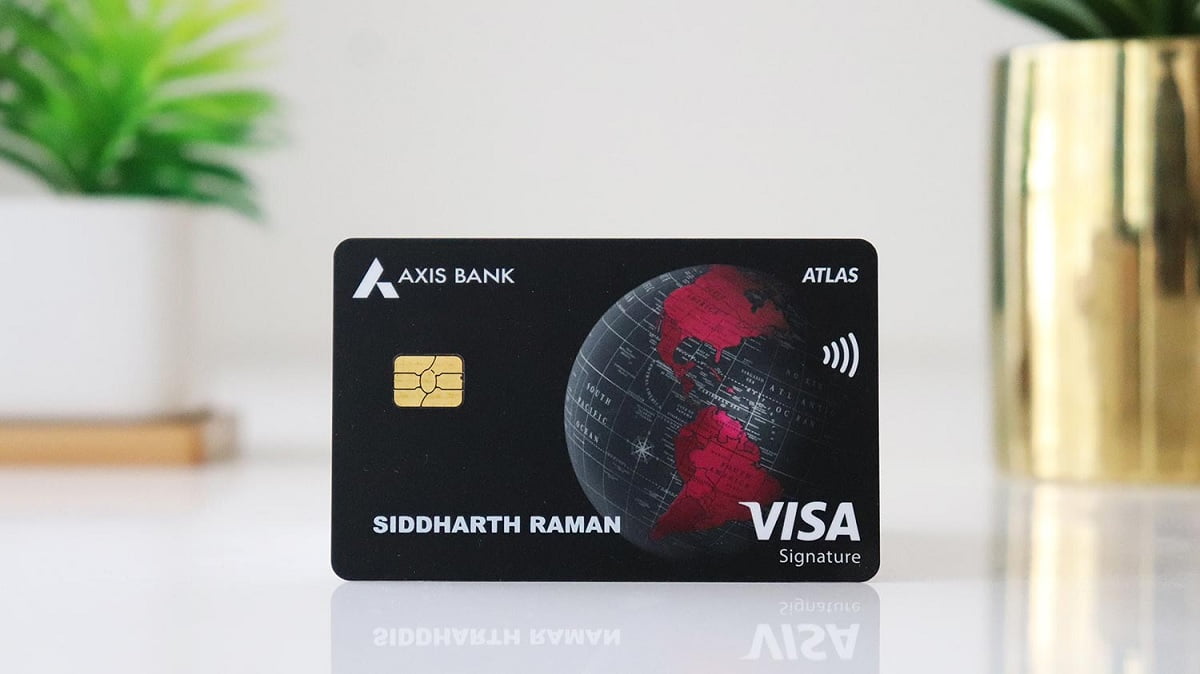Axis Bank Magnus Credit Card Reviews 2026

The Axis Bank Magnus Credit Card is one of the premium travel and lifestyle credit cards available in India. With a focus on travel, rewards, and insurance benefits, it is designed for frequent travelers, high spenders, and Axis Bank customers.
In this detailed review, we will cover an overview of the card’s features, benefits, drawbacks, eligibility, and fees. We’ll help you understand if the Axis Bank Magnus Credit Card is worth it for your needs.
Overview of Axis Bank Magnus Credit Card
The Axis Bank Magnus Credit Card offers the following features and benefits:
Features and Benefits
- Complimentary airport lounge access
- Unlimited domestic and international lounge access
- Complimentary access to golf courses in India
- Insurance cover, including air accident cover of ₹1 crore
- Lost card liability cover of ₹1 lakh
- Purchase protection cover of ₹50,000
- Complimentary Priority Pass membership
- Rewards program – 8 reward points per ₹200 spent
- Redeem points for air miles, hotel stays, dining, and shopping vouchers
Eligibility and fees
- Annual fees – ₹14,999 + GST
- Renewal fees – ₹14,999 + GST
- Eligibility – Salaried individuals with an annual income of ₹8 lakh and self-employed individuals with an annual income of ₹15 lakh
How to apply
You can apply for the Axis Bank Magnus Credit Card through the following methods:
- Online application on the Axis Bank website
- In-branch application at Axis Bank locations
- Contact the Axis Bank customer service phone banking team
The application process involves sharing your personal and financial details along with KYC documents for verification.
Benefits of the Axis Bank Magnus Credit Card
This Axis Bank Credit Card offers cardholders significant benefits, especially for frequent travelers and high spenders.
Welcome and renewal benefits
- 20,000 bonus reward points on the first card fee payment
- 15,000 renewal bonus points every year
- 1 complimentary domestic airport lounge visit
- ₹3,000 worth of vouchers from participating brands
Reward points
- 8 reward points for every ₹200 spent
- 2x points on weekend dining, entertainment, and travel spend
- Redeem points for air miles, hotel bookings, dining vouchers,s and more
Insurance coverage
- Air accident cover of ₹1 crore
- Card lost liability cover of ₹1 lakh
- Purchase protection of ₹50,000 for goods damaged within 90 days of purchase
Lounge access
- Unlimited complimentary access to domestic and international lounges
- Access to 650+ VISA lounges globally
- Complimentary Priority Pass membership
Drawbacks of the Axis Bank Magnus Credit Card
While the Axis Bank Magnus Credit Card offers premium benefits, it does come with some drawbacks to consider:
Annual fees
At ₹14,999 + GST, the annual fees for the Axis Bank Magnus Card are quite steep compared to regular credit cards. The high renewal fees can diminish the value derived from the benefits.
High minimum spend requirements
To maximize the rewards and make the most of the benefits, you need to spend a minimum of ₹1-1.5 lakh annually on the card. For lower spenders, the high fee may not justify the returns.
Who is the Axis Bank Magnus Credit Card good for?
Given its premium offerings and high fees, the Axis Bank Magnus Credit Card is ideal for:
Frequent travelers
The lounge access, insurance coverage, and rewards make it great for business and leisure travelers. The travel benefits offset the high fee.
High spenders
With high spending requirements to maximize rewards, the card suits individuals spending over ₹1 lakh annually. The benefits match the fees for big spenders.
Axis Bank customers
Existing Axis Bank customers get priority access to the card and can maximize synergies across accounts and benefits. The familiarity improves the overall experience.
How the Axis Bank Magnus Credit Card Compares to Other Cards
Here’s how the Axis Bank Magnus Credit Card fares compared to other premium travel cards:
vs. HDFC Diners Club Privilege Credit Card
- Higher rewards rate – 8 vs. 4 points per ₹200
- Lower fees – ₹14,999 vs ₹20,000
- More lounge access – 650+ vs 300+ lounges
vs. Citi Prestige Credit Card
- Lower annual fees – ₹14,999 vs ₹20,000
- Priority Pass vs Citibank lounge access
- Similar dining and travel benefits
vs. American Express Platinum Travel Credit Card
- Lower rewards rate – 8 vs. 10 points per ₹200
- Priority Pass vs Centurion lounge access
- Lower late payment and cash withdrawal fees
FAQs
Q. What are the fees for the Axis Bank Magnus Credit Card?
The annual fee for the Axis Bank Magnus Credit Card is ₹14,999 + GST. The renewal fee is also ₹14,999 + GST per year.
Q. What is the minimum income eligibility for the card?
The minimum annual income required is ₹8 lakh for salaried applicants and ₹15 lakh for self-employed applicants.
Q. How many reward points can you earn with this card?
You earn 8 reward points for every ₹200 spent on the Axis Bank Magnus Credit Card. Additional bonus points are offered for weekend travel, dining, and entertainment spends.
Q. What are the key benefits of this card?
The key benefits are unlimited domestic and international lounge access, comprehensive insurance coverage, reward points on spending, renewal gifts, and bonus points.
Q. Is a lifetime free credit card available from Axis Bank?
No, Axis Bank does not offer any lifetime free credit cards. The Axis Bank Magnus Credit Card has an annual and renewal fee of ₹14,999 plus GST.
Verdict – Is the Axis Bank Magnus Worth It?
The Axis Bank Magnus Credit Card makes the most sense for frequent travelers who can maximize airport lounge access and travel benefits. With significant spending on the card, the high fees are justified by the rewards and insurance coverage.
However, it isn’t ideal for infrequent travelers or lower spenders who won’t be able to reap the full benefits due to the steep fee. The lounge access itself may not provide enough incremental value for such users.
Our verdict is that the Axis Bank Magnus Credit Card is worth considering for its intended premium audience of high-spending frequent travelers and Axis Bank customers. However, it comes with caveats of a high annual fee and the need for significant annual spending to maximize its utility.



